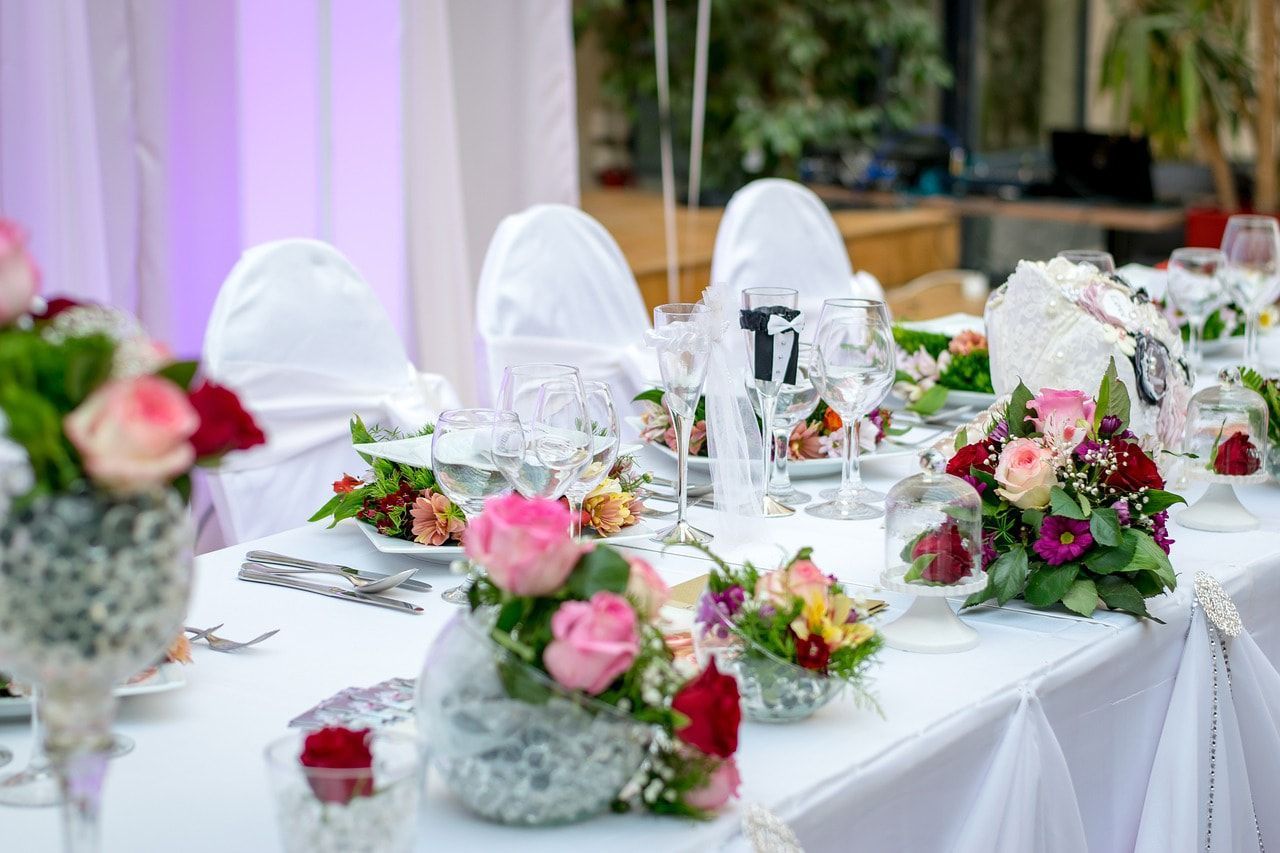Top Checklist Events for Flawless Event Planning
Need a reliable guide for event planning? Our checklist events article has you covered. We outline each step, from pre-planning to post-event analysis, ensuring a smooth and organized process. Say goodbye to stress and hello to flawless events.
Key Takeaways
- Start planning early to set a strong foundation and avoid scheduling conflicts by checking calendars.
- Gather essential information, like event name, date, and location, to help define goals and streamline logistics.
- Use communication and project management tools to enhance coordination and execution, ensuring a seamless event experience.
Essential Pre-Planning Steps
Starting the planning process early is crucial for successful events. Whether you’re organizing a small gathering or a large conference, giving yourself ample time to prepare can make all the difference. A solid event planning checklist supports you from beginning to end, helping to streamline the planning process and ensure nothing is overlooked.
A timeline of 5-6 months is typically sufficient for smaller events, but larger events may require even more lead time. This section will guide you through the essential pre-planning steps, including checking calendars and defining event goals. By setting a strong foundation, you will ensure a smooth and successful event.

Checking Calendars
One of the first steps in your event planning checklist is to check various calendars, such as the Comet Calendar and academic schedules, to avoid scheduling conflicts. The chosen date should accommodate the availability of key stakeholders and avoid overlaps with major holidays and local events, maximizing attendance.
Finalize the event date by ensuring all schedules align and conflicts are avoided.
Defining Event Goals
Defining clear goals is a cornerstone of effective event planning. The initial details should include the purpose of the event and identifying the target audience. These goals will guide every decision you make, ensuring that the event meets its objectives and resonates with attendees.
Essential details for planning include the event type and goals, as well as the name, date, location, and expected attendance. Whether it’s a virtual event or an in-person gathering, having a clear focus ensures that every aspect of your planning process aligns with your overall vision.
By setting these foundational elements early, you create a roadmap for success.
Gathering Basic Information
Gathering basic information at the beginning of the planning process is essential for formulating a structured plan. This includes the event name, timing, location, anticipated attendance, and key participants. Collecting this initial information helps you identify the scope of the event and the resources you’ll need to make it a success.
This section will guide you through gathering these essential details, including selecting the event name and date, choosing the right location and venue, and identifying key participants. Addressing these elements early on will lay the groundwork for well-organized and successful event logistics.
Event Name and Date
For marketing and promotions, it is crucial to choose an event name that reflects its purpose and appeals to the target audience. The name sets the tone and helps potential attendees understand what to expect.
Setting the date early allows for ample time to organize other event components and secure necessary resources. Check for conflicts with other events or significant holidays to ensure better attendance.
Creating a master plan includes finalizing the event date and name as foundational elements for all subsequent planning.
Location and Venue
Choosing the right venue is crucial for ensuring the success of any event. Consider factors such as accessibility, capacity, and available amenities to ensure it meets the event’s requirements. The selected venue should accommodate the nature of the event and expected attendance, along with meeting logistical needs like accessibility.
The choice of venue significantly impacts attendee experience, logistics, and the overall success of the event. By carefully considering these factors, you ensure that the venue enhances the event experience and meets all necessary requirements.
Key Participants
Identifying key participants, such as keynote speakers and special guests, is essential for the event’s credibility and appeal. Speakers or special guests can significantly enhance the significance of the event and attract more attendees.
Having well-known participants can increase attendance and engagement, making the event more appealing to potential attendees.

Planning Physical Needs
Planning for the physical needs of your event is a crucial part of the planning process. This includes arranging seating, organizing catering services, and ensuring audio/visual equipment is set up and functioning properly. Proper physical planning ensures that all essential elements are adequately organized, taking into account any specific requirements or restrictions.
This section will guide you through the key aspects of planning physical needs, including seating arrangements, catering services, and audio/visual equipment. By addressing these elements, you ensure a smooth on-site execution and an enjoyable experience for all attendees.
Seating Arrangements
Estimate the expected guest count to determine the number of seats required. Consider the event's layout to assess how seating capacity will be impacted. Based on the event format, explore seating options such as theater, banquet, or classroom styles.
These arrangements play a critical role in the overall flow and comfort of the event.
Catering Services
Catering services are essential to enhance the experience of event attendees. Catering can include serving various food or beverages tailored to the event theme. It is crucial to consider dietary restrictions and preferences to cater to all guests.
Best practices for selecting catering services involve checking references and tasting menus beforehand to ensure quality and satisfaction.
Audio/Visual Equipment
It is essential to ensure that the audio/visual equipment meets the venue’s size and the expected audience’s needs. Adequate testing before the event can prevent technical issues. Choosing the right projectors and screens is crucial to ensure visibility and clarity during presentations.
Additionally, using a sound mixer allows for better control of audio quality, especially when multiple microphones are in use.
Coordinating Guest Logistics
Coordinating guest logistics is a vital aspect of event planning. Clear communication about travel and accommodation details ensures a smooth experience for attendees. Using a CRM like Salesforce or Hubspot can significantly enhance attendee management and relationship maintenance before and after events. Effective team communication tools facilitate remote collaboration and ensure all team members stay informed about event developments.
This section will guide you through the key aspects of coordinating guest logistics, including invitations and RSVPs, travel and parking, and accommodations. By addressing these elements, you will ensure a seamless experience for your guests.
Invitations and RSVPs
Personalized invitations enhance guest engagement and increase the likelihood of receiving timely RSVPs. Sending invitations earlier increases the likelihood of receiving timely responses from guests. User segmentation features help tailor communication and access based on attendee responses during registration.
Creating a seating chart can foster guest interaction and enhance the overall event experience.
Travel and Parking
Clear travel and parking logistics are essential for your guests' convenience. Provide detailed information about travel arrangements and parking options to ensure a smooth arrival experience. Additionally, make arrangements for disabled guests to ensure accessibility for all attendees.
Accommodations
It is crucial to provide a list of nearby hotels that offer suitable accommodations for guests attending the event. Guests should make necessary reservations in advance to ensure that they secure their rooms.
This not only ensures comfort for your guests but also enhances their overall event experience.

Marketing and Promotions
Marketing and promotions are essential to ensuring your event reaches its target audience. Building partnerships and utilizing word-of-mouth can be effective methods of promoting an event. Running social media contests and partnering with influencers can increase visibility and excitement about the event.
This section will guide you through the key aspects of marketing and promotions, including social media campaigns, email marketing, and traditional advertising. By leveraging different promotional strategies, you can maximize your event’s reach and engagement.
Social Media Campaigns
Social media is a powerful tool for promoting events. Choosing the right platforms, such as Facebook and Instagram, allows you to reach a broader audience and engage potential attendees. Running contests and using multiple ticketing options can create buzz and drive ticket sales.
Influencer partnerships can expand your reach by tapping into their established audience.
Email Marketing
Email marketing is a crucial strategy for engaging potential attendees and boosting event attendance. Sending reminders and engaging content via email can significantly enhance the likelihood of attendance. Incorporating compelling visuals in email campaigns can increase engagement and click-through rates.
The strategic timing of reminders keeps the event top-of-mind for attendees.
Traditional Advertising
Traditional advertising methods, such as print media and radio, can effectively reach audiences who may not engage with digital platforms. Local newspapers and magazines can also target specific demographics that may not be reached online.
These methods provide a vital avenue to connect with diverse audiences beyond the digital realm.
On-Site Setup and Execution
Ensuring flawless on-site setup and execution is critical for the success of your event. Establishing a timeline helps keep the planning phase organized by outlining tasks and deadlines. Effective communication is essential for clarifying roles and responsibilities among team members and vendors.
This section will guide you through the key aspects of on-site setup and execution, including venue preparation, coordination with staff, and real-time adjustments. By addressing these elements, you ensure a smooth and successful event experience for all attendees.
Venue Preparation
Setting up the venue requires careful placement of signage and decorations to enhance the overall event experience. Ensure that all physical items, such as tables, chairs, and audio/visual equipment, are arranged according to the layout that best serves the event’s purpose.
Final walkthroughs of the venue are essential to confirm that everything is set up correctly before guests arrive.
Coordination with Staff
For smooth event operations, it is crucial to assign team members clear roles and responsibilities. Project management applications assist event planners in coordinating tasks, deadlines, and responsibilities among team members.
These apps often include features for tracking progress and collaborating in real-time, enhancing overall workflow efficiency.
Real-Time Adjustments
Being flexible and ready to make immediate changes can help address unexpected challenges during the event. An event manager should be prepared to make immediate changes based on the progress of the event and any unexpected issues.
This flexibility ensures a seamless experience for attendees and helps maintain the event’s overall success.
Post-Event Tasks
After an event, it is crucial to execute specific tasks that ensure the finalization of the event experience. These tasks include collecting feedback, finalizing financial settlements, and sending thank-you notes. By addressing these elements, you can wrap up the event on a positive note and prepare for future events.
This section will guide you through the key post-event tasks, including feedback collection, financial settlement, and thank-you notes. By handling these tasks efficiently, you ensure a smooth transition from event completion to future planning.
Feedback Collection
Collecting feedback helps organizers understand attendees’ experiences and identify areas for enhancement. Gathering and analyzing participant feedback shortly after the event is vital as attendees are more likely to respond while their experiences are still fresh.
Surveys can be used to gather insights from attendees and team members about their experiences and suggestions for improvement. Utilizing open-ended questions in post-event surveys allows organizers to collect detailed feedback and personal experiences.
Financial Settlement
Finalizing financial details after an event involves settling all outstanding payments to vendors and reconciling the budget. ClickUp offers features for budget management, client collaboration, and tracking attendee information for events.
Finalizing financial aspects includes settling outstanding invoices and reviewing the budget to ensure all costs are accounted for.
Thank-You Notes
Sending personalized thank-you messages to attendees, sponsors, and team members helps foster goodwill and encourages future participation. Sending thank-you notes can strengthen relationships with attendees, sponsors, and volunteers, acknowledging their contributions and support.
This gesture fosters goodwill and strengthens relationships with attendees, sponsors, and volunteers.
Post-Event Analysis
Evaluating an event post-completion is crucial for understanding its success in relation to pre-defined objectives. Clear objectives serve as guiding principles throughout the entire event planning process and help in evaluating both planning success and overall performance. Completing post-event tasks is crucial for assessing the event’s success and planning future improvements.
This section will guide you through the key aspects of post-event analysis, including data review and lessons learned. By thoroughly analyzing the event, you can gain valuable insights that inform and enhance future events.
Data Review
Analyzing attendance metrics, budget reports, and participant satisfaction are essential elements to review post-event. Key performance indicators, such as total attendance and registrant conversion rates, are vital for measuring event success.
Finalizing the budget involves reconciling expenses, ensuring all bills are paid, and evaluating financial performance against the initial budget. This thorough review process helps confirm the event’s overall success and identify areas for improvement.
Lessons Learned
Documenting insights and recommendations from past events helps refine planning and execution for future events. Observations and suggestions can significantly improve planning and execution for future events. This documentation enables organizers to implement improvements and make informed adjustments for future planning.
By learning from each event, you ensure continuous improvement and success.

Recommended Event Management Tools
Using digital tools can streamline the process of sending invitations and tracking RSVPs efficiently. Digital RSVP systems can enhance tracking responses and manage guest lists efficiently.
This section will guide you through the recommended event management tools, including event registration software, project management apps, and communication platforms. By leveraging these tools, you can simplify the planning process and ensure a successful event.
Event Registration Software
Event registration software plays a crucial role in simplifying the registration process and managing attendees effectively. Platforms like Bevy and Whova offer comprehensive features, including event registration, attendee networking, and real-time communication. Self-service registration platforms allow organizers to create their own forms and manage events without extensive technical support.
Swoogo specializes in attendee management and ticketing functionalities.
Project Management Apps
Project management apps help streamline task management and enhance collaboration among event planning teams. Asana is effective for managing event-related projects, allowing users to create detailed workflows and monitor progress through various visual tools.
These apps assist event planners in coordinating tasks, deadlines, and responsibilities among team members.
Communication Platforms
Effective communication platforms streamline coordination among teams and enhance overall event management. By utilizing these tools, event planners can significantly improve communication and coordination, leading to a more successful event execution.
Event registration software simplifies the process of managing attendee information, making communication with guests efficient. Project management apps facilitate task organization and tracking within teams, ensuring everyone stays on the same page throughout the planning process.
Summary
In summary, planning a flawless event requires meticulous preparation and attention to detail. Starting early, using a comprehensive event planning checklist, and addressing each element of the planning process ensures a smooth and successful event. From pre-planning steps and gathering basic information to coordinating guest logistics and marketing, each stage plays a crucial role in the overall success of the event.
By leveraging recommended event management tools and conducting thorough post-event analysis, you can continuously improve and refine your planning process. Remember, every event is an opportunity to learn and grow. Embrace the challenges, celebrate the successes, and keep striving for excellence. Your perfect event is within reach.
Frequently Asked Questions
Why is it important to start planning early for an event?
Planning early is crucial because it allows you to organize everything smoothly, from venues to invitations, without the stress of last-minute rushes. This way, you can enjoy the process and create a memorable event.
How do I choose the right venue for my event?
Choose a venue that fits your event’s size and purpose while also being easily accessible for your guests. Make sure it has the necessary amenities to enhance the overall experience.
What are the benefits of using event registration software?
Using event registration software streamlines the registration process and helps manage attendees efficiently. Plus, it often includes features for networking and real-time communication, making your event planning much smoother.
Why is collecting feedback after an event important?
Collecting feedback after an event is crucial because it helps you grasp what attendees enjoyed and what can be improved, ensuring future events are even better. Plus, it shows you care about their experience!
How can I effectively promote my event on social media?
To effectively promote your event on social media, leverage platforms like Facebook and Instagram, run engaging contests, and collaborate with influencers for broader reach. Offering multiple ticketing options can also enhance excitement and drive sales!
More Articles from Geneva Point Center
© Copyright
Geneva Point Center
All Rights Reserved.
Website by Clover Creative Group












